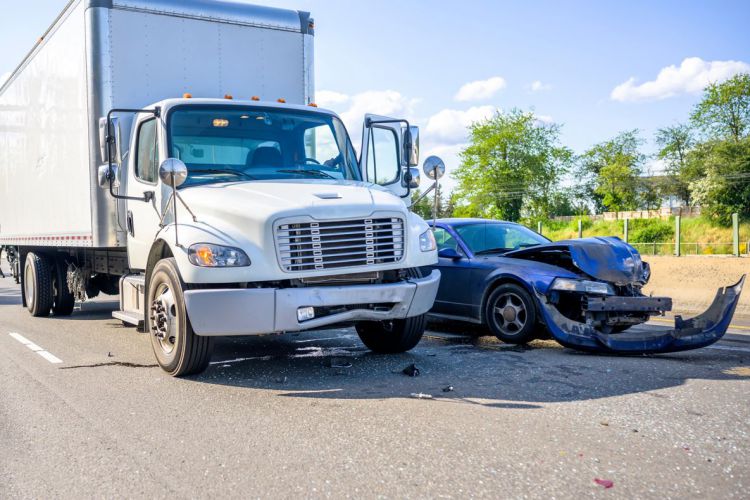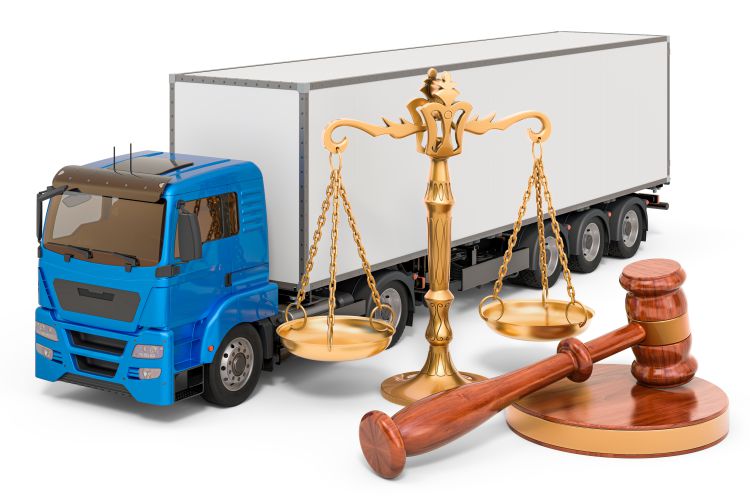 After the physical trauma of a truck collision comes the legal nightmare of seeking fair compensation. Feel buried under medical invoices and income loss while trucking firms shift blame? Face draining negotiations as insurers lowball settlements? Overwhelmed trying to reveal liable parties hiding behind powerful legal shields? Find your way through the messy maze of truck accident lawsuits.
After the physical trauma of a truck collision comes the legal nightmare of seeking fair compensation. Feel buried under medical invoices and income loss while trucking firms shift blame? Face draining negotiations as insurers lowball settlements? Overwhelmed trying to reveal liable parties hiding behind powerful legal shields? Find your way through the messy maze of truck accident lawsuits.
This guide explores major lawsuit basics—responsible defendants, disputed causes, helpful evidence, courtroom arguments, resultant awards, and more. Arm yourself with key legal insights to confidently pursue compensation after crashes rather than accept injustice.
Table of Contents
Understanding Truck Accident Lawsuits
After a truck accident, victims suffer overwhelming personal troubles. There are serious physical and emotional issues from injuries. Huge financial stresses also happen from medical bills and income loss.
On top of these difficulties, the complicated legal processes involved in truck accident claims and lawsuits are frustrating. Learning more about these confusing legal cases can help lower victims’ high levels of distress.
Asking for legal assistance from a trusted lawyer, like lawyers handling truck accident in Utah, helps reduce some burden caused by the complex post-accident legal situation—from filing a lawsuit to guiding you about the necessary steps to take to get justice.
Factors That Lead to Truck Accident Lawsuits
Several issues typically lead victims to file a lawsuit following a truck collision, including:
- Severe Injuries: Truck crashes often cause severe injuries like brain trauma, spinal damage, broken bones, burns, etc. These frequently bring major medical bills and lost income. Lawsuits seek to recover compensation for victims.
- Disputes Over Fault: Trucking companies may deny fault or responsibility for truck crashes. They can wrongly blame victims. Lawsuits establish legal liability through investigation.
- Inadequate Insurance Payouts: Insurers may provide minimal payouts that fail to cover substantial medical costs and other losses from truck wrecks. Lawsuits fight for fuller financial recovery.
- Lost Quality of Life: Crashes cause disability or loss of abilities, greatly lessening life enjoyment. Lawsuits calculate the quality of life damages to incorporate in financial awards.
By understanding these factors, you can evaluate if you have grounds to pursue a lawsuit.
Steps Involved in Truck Lawsuits
Major steps in pursuing truck accident claims include:
1. Filing Initial Lawsuit Paperwork – The lawyer must properly complete and submit the right forms to start the lawsuit. This is the first official step in the legal process.
2. Gathering Evidence – Get police reports, medical records, and inspection papers to help prove your case. Strong evidence will help show the truck driver caused the crash.
3. Establishing Liability – Use the evidence to show it was the truck driver’s fault and responsibility for the crash. Prove the driver’s actions that caused the accident and your injuries.
4. Calculating Damages – Add costs like medical bills, lost wages, and hard-to-count pain and suffering. Document all your financial losses and long-term impacts from the crash.
5. Settlement Negotiations – Your lawyer tries to get a fair payment offer without going to trial. Negotiations aim to reach an agreement on compensation without a lengthy trial.
6. Trial Preparations – If no settlement is reached, you and your lawyer will practice and plan extensively for trial. Thorough preparation is key to presenting a compelling case in court.
7. Courtroom Arguments and Testimony – Lawyers present evidence, and you may testify to persuade the jury. The goal is to convince the jury the trucking company bears responsibility.
8. Verdict and Award – The jury decides if the trucking company is at fault and if you should receive compensation. The verdict determines if you will be paid damages and how much.
Key Steps for Victims in Lawsuits After Truck Crashes
 Victims or family members who choose to pursue lawsuits should focus efforts on:
Victims or family members who choose to pursue lawsuits should focus efforts on:
- Finding Experienced Attorneys – Lawyers well-versed in truck cases better handle complex state and federal regulations. Look for an attorney with a proven record of success in similar truck accident cases.
- Cooperating Fully With Your Lawyer – Be involved and provide needed information as your legal team fights your case. Respond promptly to all requests from your attorney for documents, records, and other information.
- Gathering Recommended Documents – Assist attorneys by compiling medical invoices, crash photos, pay stubs, etc. Have all relevant documents ready to share with your legal team as early as possible.
- Meeting Case Deadlines – The court will set deadlines for taking certain actions in your case. There are due dates for filing papers or other tasks. Don’t be late on any court dates or submissions. Missing deadlines can badly hurt your case. Stay on top of the schedule so your case keeps moving forward properly.
- Truthfully Answering Questions – When your lawyer asks you questions, answer honestly. Do not lie or hide anything. The same goes for answering questions in a deposition or court. Even small lies can undermine your credibility and damage your case. So, stick to the facts and do not hold anything back when responding to questions.
- Avoiding Social Media Mistakes – Do not discuss anything about your accident or case on social media. The trucking company’s lawyers will look at your profiles. They want evidence to use against you. If you post about feeling sad or in pain, they may use it to claim you are exaggerating your injuries. Updates about activities can also be twisted against you. Just staying off social media altogether until your case is resolved is the safest approach.
- Understanding Award Disbursement – The money from a settlement may not all go directly to you. Some may first be used to pay back your insurance company, doctors, or lawyer. So, you may not get the full amount of the settlement. Your lawyer should explain clearly how much money you will get directly. Ask questions if you are unsure.
Conclusion
Truck accident lawsuits demand extensive time, documentation, and legal skills to succeed and recover damages. Decoding key aspects like responsible parties, lawsuit stages, and victims’ roles, the process becomes less complicated. Understanding legal complexities allows focusing energy on constructing the strongest case possible after a devastating truck collision.
Author bio
John Howard writes about legal issues and personal injury cases. He aims to help accident victims understand complex legal processes so they can pursue fair compensation. When not researching legal topics, John enjoys hiking and photography.






